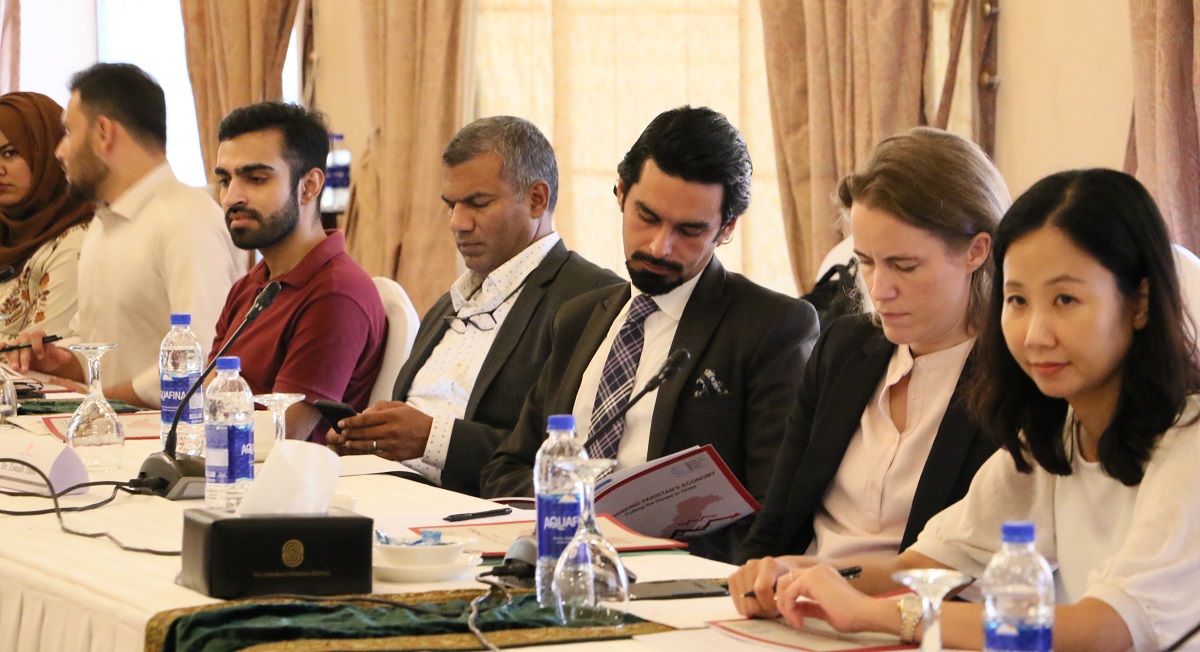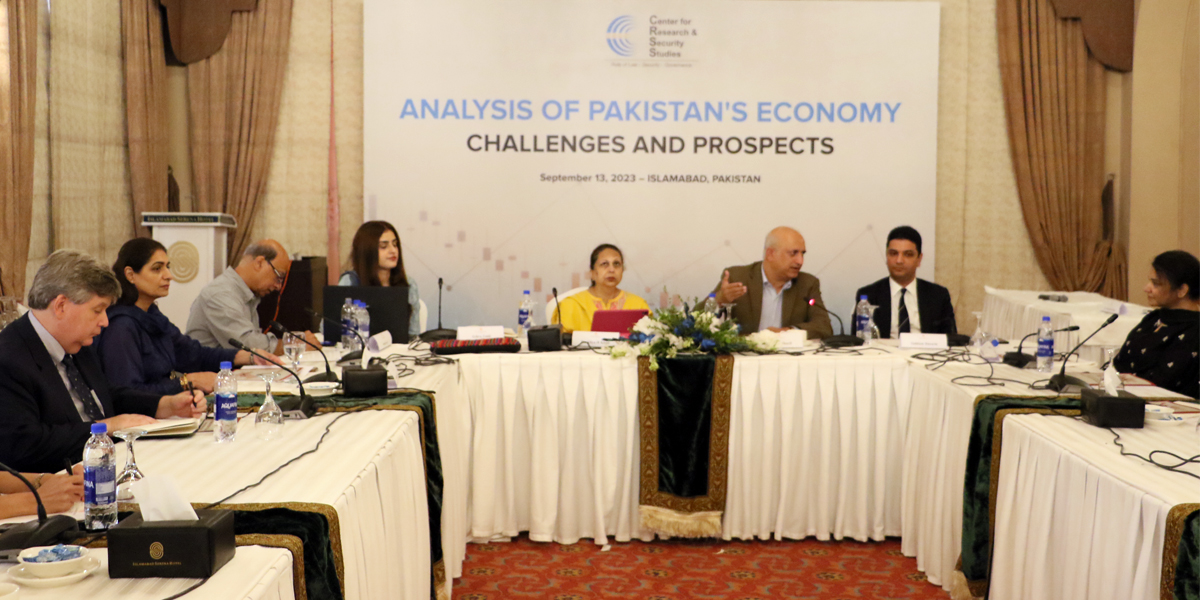There are structural and inherent fault lines within Pakistan’s economy. The country is undergoing a prolonged recession and experiencing its 3rd consecutive year of low GDP growth. Pakistan is labeled as a UN debt-stressed country – ranked 3rd among 40 such countries – where a major chunk of its budget goes towards paying interest. Pakistan’s GDP to investment ratio hasn’t improved and its reliance on short-term, high-interest loans perpetuates the economic crisis. Economic problems have been historically viewed and resolved through a geopolitical lens. This is now changing. A silver lining is that reaching this stage might drive a more genuine effort to address economic issues without the influence of geopolitics.
These remarks were made by the former Minister of State and Chairman of Pakistan’s Board of Investment, Mr. Haroon Sharif, at the launch of the research report, Rethinking Pakistan’s Economy: Putting the House in Order, published by the Center for Research and Security Studies (CRSS).
Mr. Sharif, who worked as the Regional Advisor to the World Bank Group for six years to promote Economic Cooperation in South and Central Asia, emphasized the need for value-adding investments and a shift towards a knowledge-based economy. He also highlighted the importance of higher profit margins and stopping economic leakages and recommended shifting the focus from selling mere dreams to creating actual value. “It’s essential to address the foundational economic issues rather than just applying short-term fixes”, he stressed.
Prof. Dr. Aliya Hashmi Khan, Professor of Economics (Retired), former Director School of Economics, and former Dean Faculty of Social Sciences, Quaid-i-Azam University, also spoke at the report launch. She brought attention to gender budgeting as an issue that has yet not caught attention in Pakistan. Gender disparities have been identified in the country by various monitoring bodies dedicated to gender parity. Addressing these gaps does not require going out of the conventional ways.
She noted that gender budgeting tries to ensure whether there is sufficient gender budgetary resource allocation to close gender gaps for economic opportunities that exist in Pakistan.
She also emphasized on technological adoption being a key driver of business transformation but unfortunately, slow growth exists globally as well as in Pakistan which is arising from geopolitical tensions like the Russia-Ukraine war, hence disrupting supply chains.
She stated the country is not producing a conducive environment to attract investment and lacks the soft infrastructure needed for the success of economic zones like CPEC. Pakistan is neither preparing the workforce nor including women to take opportunities to get jobs that are in demand globally. She concluded by saying it can be hoped that Pakistan would come out of this issue as it has the resources and intellectual knowledge to integrate into the political economy that exists in Pakistan.
Saddam Hussein, the lead author of the research report, who serves as an Assistant Chief (Policy) at the Pakistan Institute of Development Economics (PIDE), enunciated that Pakistan’s enduring struggle with economic and political instability has left it entangled in the perplexing enigma of unstable development. Since its inception, the economic performance of Pakistan has been marred by extreme volatility. This tells a lot about the character of our will as well as strategic planning. In one-liner, it can be said that it has all been just firefighting and the absence of long-term vision.
Hussein apprised the audience that the economy is all about transactions. Make transactions easy, the economic activity will take care of itself. The government should be only an umpire, not the player itself. It is not the business of government to run the business. Without addressing such grave issues, any reform effort will be futile.
The report published by CRSS depicts insights on Pakistan’s economic fault lines and the options for revival. It notes that it is imperative for Pakistan to focus on IT and agriculture sectors in the short run, as the outcomes can be reaped within a season. Afterward, the medium-term approach should be around promoting industrialization, in particular, the export sector to have a sustainable source of foreign exchange earnings. This ought to be coupled with addressing the red-tape tango and rent-seeking machinery. In parallel, civil service and judicial reforms ought to be initiated on fast track.

Whereas, in the long run, we have to deal with our fractured political system. Lastly, Pakistan seriously needs to shift from the vertical governance of the state or the government to the idea of network governance, where the horizontal web of organizations functions in individual capacity independently, while also contributing to the economy on the aggregate level.

